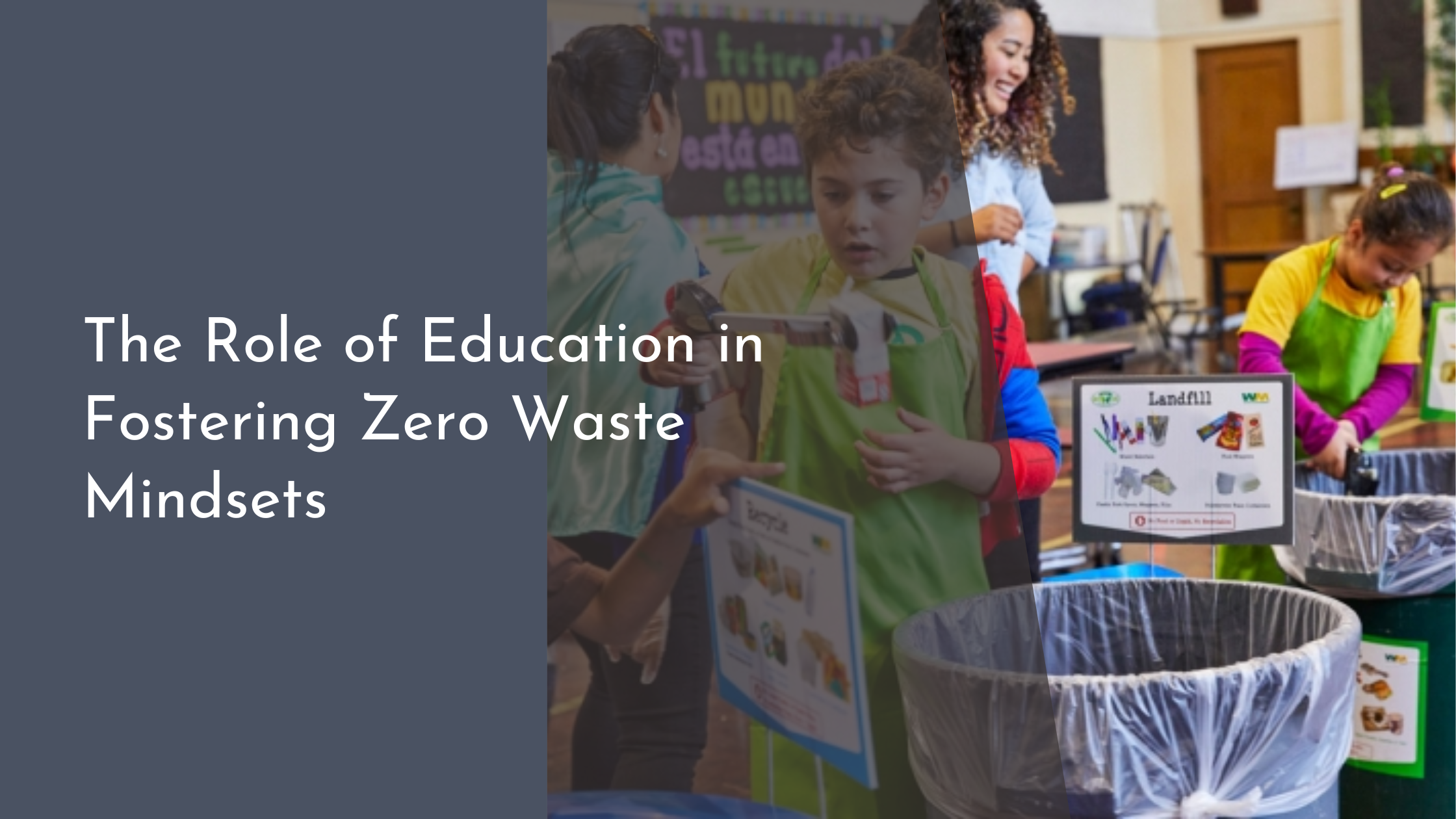The Role of Education in Fostering Zero Waste Mindsets
In an era where environmental concerns have reached a critical point, the concept of zero waste has emerged as a beacon of hope for a sustainable future. At its core, zero waste aims to reduce what we throw away, encouraging a circular lifecycle for products and materials. A crucial component in achieving this goal is education, which plays an essential role in fostering a zero waste mindset among individuals and communities. Through educational initiatives, we can inspire a new generation to prioritize sustainability and transform waste into a valuable resource.
Understanding Zero Waste and Its Importance
Zero waste is more than just a trend; it is a lifestyle and systemic approach that challenges us to rethink our relationship with consumption and waste. By aiming to eliminate waste through the principles of reduce, reuse, and recycle, zero waste encourages us to consider the environmental impact of our actions. This approach not only conserves resources but also reduces pollution, mitigates climate change, and promotes sustainable development.
The importance of zero waste cannot be overstated. As global waste production continues to rise, the need for sustainable waste management solutions becomes increasingly urgent. Zero waste offers a viable solution by closing the loop in product lifecycles, preserving valuable resources, and minimizing pollution. By adopting a zero waste mindset, individuals and communities can contribute to a cleaner environment and a more sustainable future.
Educational Approaches to Zero Waste Practices
Education serves as a powerful tool in promoting zero waste practices. By integrating zero waste concepts into curricula, educators can equip students with the knowledge and skills needed to make sustainable choices. Experiential learning opportunities, such as school recycling programs or waste audits, can provide students with a tangible understanding of their impact on the environment and the importance of sustainable behavior.
In addition to formal education, informal educational approaches like workshops, seminars, and online courses can reach a broader audience. These platforms can offer practical tips on reducing waste, engaging community members in discussions about sustainability, and encouraging the adoption of eco-friendly habits. By making zero waste education accessible to everyone, we can empower individuals to take meaningful action in their daily lives.
Role of Schools in Promoting Sustainable Habits
Schools are uniquely positioned to promote sustainable habits among young people. By incorporating sustainability into various subjects, schools can nurture a culture of environmental awareness and responsibility. Initiatives such as zero waste lunch programs, eco-clubs, and green school certifications can encourage students to adopt and advocate for sustainable practices, both in and out of the classroom.
Moreover, schools can serve as role models for sustainable practices by implementing zero waste policies themselves. By reducing paper usage, composting organic waste, and prioritizing environmentally friendly products, schools can demonstrate their commitment to sustainability and inspire students to follow suit. These efforts not only benefit the environment but also instill lifelong sustainable habits in students.
Inspiring Change Through Community Engagement
Community engagement is crucial in fostering a zero waste mindset. By working together, communities can leverage collective action to address local waste challenges and create a shared vision for a sustainable future. Community-led initiatives, such as neighborhood clean-up events, waste reduction campaigns, and zero waste workshops, can inspire individuals to take ownership of their environmental impact and promote sustainable behavior within their networks.
Partnerships between educational institutions, local governments, businesses, and non-profit organizations can amplify the impact of zero waste initiatives. By collaborating on projects such as community composting programs or recycling drives, these stakeholders can pool resources, share expertise, and create more comprehensive waste management solutions. Engaging the community in zero waste efforts ensures that sustainability is a collective endeavor, fostering a sense of shared responsibility and purpose.
As we strive for a cleaner, greener future, education remains at the forefront of the zero waste movement. By raising awareness and equipping individuals with the tools needed to make sustainable choices, educational initiatives can pave the way for a significant reduction in waste and environmental impact. Whether through formal education in schools, informal learning opportunities, or community engagement, education has the power to transform mindsets and inspire positive change. By fostering a zero waste mindset, we can empower individuals and communities to contribute meaningfully to a sustainable world and ensure a healthier planet for generations to come.

